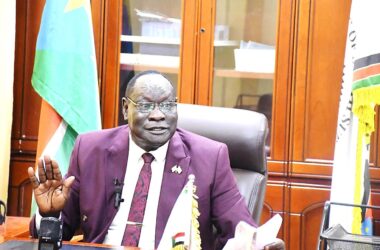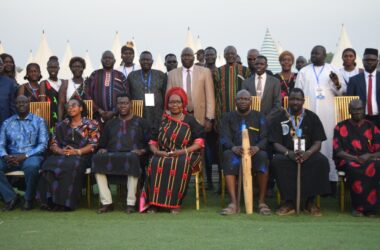
By James Innocent
Women leaders in South Sudan’s Greater Yei region are calling on men, including political and military leaders, to halt ongoing violence that continues to uproot families and deepen the humanitarian crisis in Central Equatoria State.
Hellen Ciama, head of a local women’s association, condemned clashes between government forces and opposition groups, saying they have left women and children “deeply vulnerable.”
“The fighting in Panyume, Morobo County, and nearby areas has displaced thousands,” Ciama said. “Many people are stranded in Pokula Boma without food, shelter, or healthcare. We are tired of war. People should focus on peace and development.”
In a pointed statement, Ciama warned that women may consider “sanctioning men from sexual relations for a year” if violence continues, reflecting widespread frustration over the prolonged conflict.
Local officials confirmed the scale of the displacement. Mabe Moses, director of the Relief and Rehabilitation Commission in Yei River County, said more than 2,000 people from Panyume are now sheltering in Pokula Boma.
“Most of the displaced are women and children, and they lack essential services, especially food, shelter, and healthcare,” Moses said. He appealed for urgent humanitarian support.
Pokula Boma Executive Chief Sebit Felix reported that over 2,000 households have fled Yaribe Boma in Morobo County and Marju Sub-Boma, but no humanitarian aid has reached them.
“We have not seen any aid since their arrival,” Felix said, urging the government and humanitarian agencies to act swiftly. “People are suffering without help, and insecurity is preventing many from returning home.”
Felix also called on armed groups to protect civilians, saying years of conflict have driven many families into exile. “People are tired of fighting. Some remain stranded in Uganda because they fear the insecurity here,” he said.
International aid agencies have repeatedly warned of worsening humanitarian conditions in South Sudan, where nearly nine years of intermittent conflict have left millions displaced or in need of assistance.



